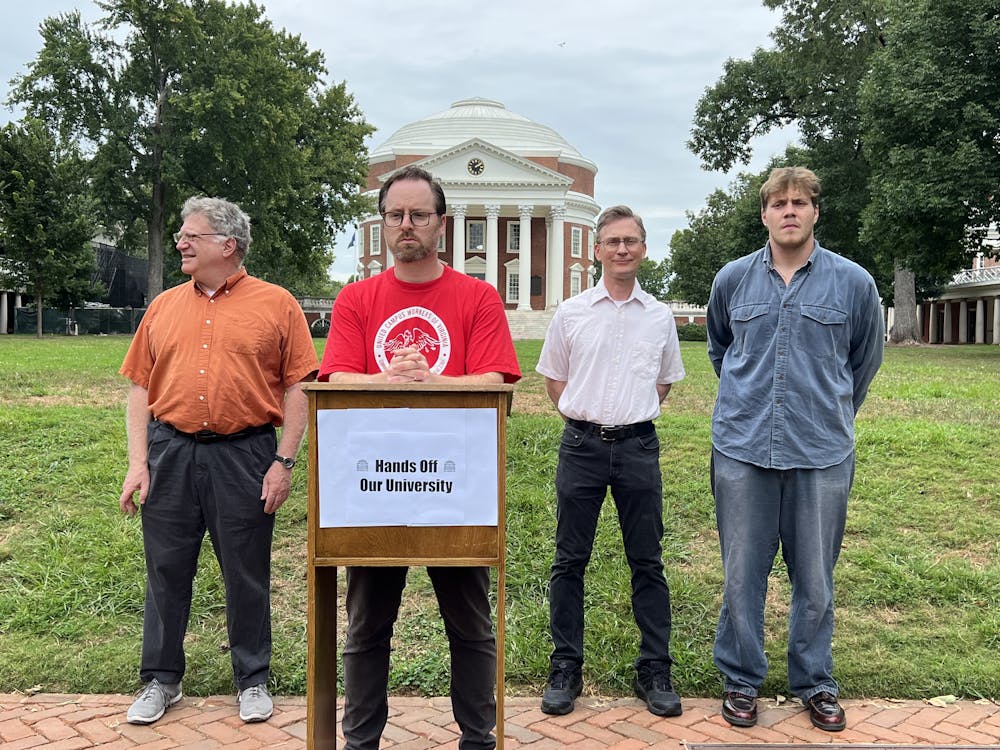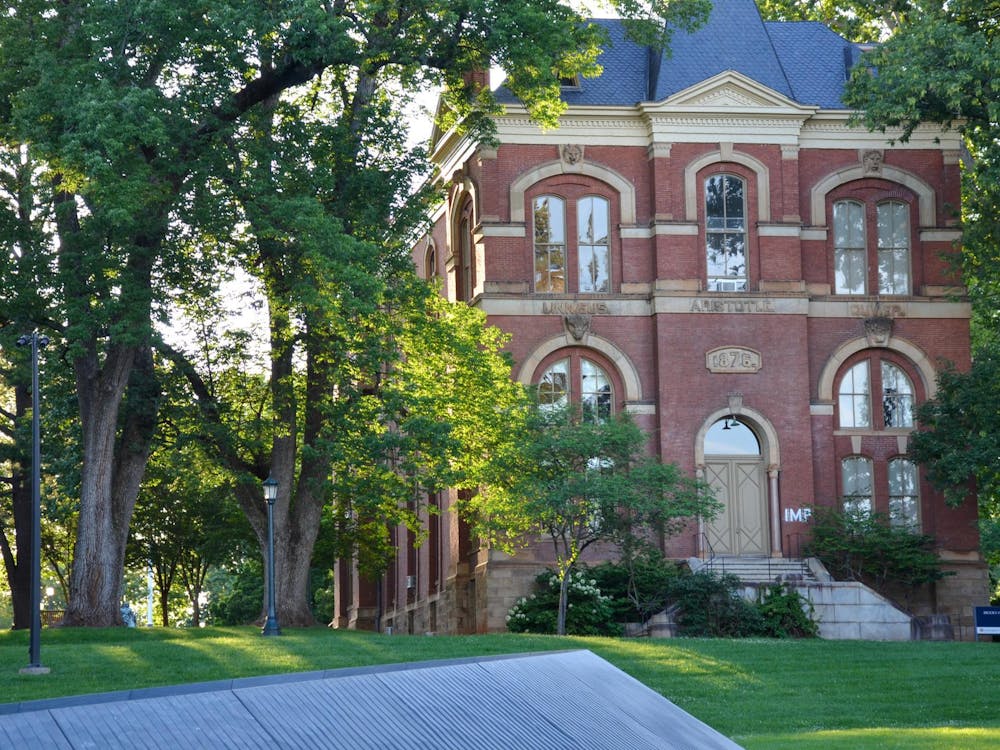Speakers from the American Association of University Professors, United Campus Workers Union, Student Council and a member of the University’s Jewish community spoke Wednesday at a press conference about the latest development in the University’s presidential saga — the appointment of interim President Paul Mahoney.
Each speaker addressed concerns over a lack of input from students, faculty, staff and community members in the circumstances which led to former University President Jim Ryan’s resignation and the decision-making process since then.
Ian Mullins, a member of UCW-VA and associate professor of sociology, began the event by describing the process for selecting an interim president as one which was “held behind closed doors,” what he called a form of “gatekeeping.”
"Let us be clear, this is not a legitimate process [for selecting an interim president] ... At a time when U.Va. needs visionary, democratic and community-rooted leadership, the BOV chose secrecy and control,” Ian Mullins, a member of UCW-VA and associate professor of sociology, said.
Mullins said that faculty, staff, students and community members were “props” in the interim presidential search, rather than decision makers. He then called on members of the University community to denounce Mahoney’s appointment as the outcome of an “illegitimate process,” and fight for shared governance.
The Board of Visitors held a series of listening sessions and solicited nominations from community members before deciding on an interim president. The recordings of those sessions and results of the nomination have not yet been released to the public. The Board has laid out a similar process for selecting a permanent president — they announced a search committee and plans to hold listening sessions over the next few months.
Clay Dickerson, Student Council president and fourth-year College student, emphasized Mullins’ comments on a lack of accountability from the Board.
“If nothing changes in the time to come, a sustained lack of trust will certifiably lead to further irreparable damage to [the Board’s] relationship with the students,” Dickerson said.
Student Council emailed a resolution to Rector Rachel Sheridan and Vice Rector Porter Wilkinson July 17 detailing what students were hoping for in the presidential transition process. Dickerson said that Student Council was not satisfied with the Board’s actions in response to the letter.
“Eight days later, without communication, students learned that many of our reasonable requests were not honored, nor were they discussed,” Dickerson said.
Student Council ultimately passed a vote of no confidence in the Board Friday.
Adam Barnes, an executive committee member of the American Association of University Professors and an electrical and computer engineering faculty member, also affirmed what Mullins had said and reminded his audience that the Board has yet to provide more information on continued pressure from the Justice Department to dismantle the University’s diversity, equity and inclusion programs.
“Other universities have been forced to sign compliance agreements due to coercion from the federal government,” Barnes said. “We believe that no compliance agreement should be signed without input from the Faculty Senate, and we cannot agree to any federal overreach that is going to compromise our academic freedom.”
Another layer to the federal involvement in the University’s presidency is the allegations from the Department of Justice and some community members that antisemitism is going unaddressed on Grounds. In response, a Jewish faculty member — Manuel Lerdau, professor of environmental sciences and biology — shared his perspective.
“We will not, in the name of protecting Jews, stand for the policies and practices that silence dissent and punish disagreement,” Lerdau said.
Instances of antisemitism were mentioned in letters from the Department of Justice alongside broader concerns over the University’s handling of DEI initiatives. Lerdau explained that, in his opinion, revoking DEI under the guise of combating antisemitism is counterintuitive.
“If the U.Va. Board of Visitors is committed to rooting out antisemitism, I implore the Board to support efforts aiming for a diverse, equitable and inclusive university,” Lerdau said. “Efforts to control universities through supposed concern for antisemitism when the real effort is to suppress inquiry exploration and the independence of universities, should not be done in our name.”
After all the speakers completed their statements, they fielded questions from the media. When asked about the University environment first year students will be walking into, Lerdau returned to the podium to offer a silver lining.
“I've taught at several different institutions over my career, and U.Va. students bring something that I haven't seen at the other ones, which is this deep, deep concern and care for the institution itself. That institutional concern, when they act on it, and they often do, is incredibly powerful. And I think what I would say to the first years is, be aware of how much power you have.”







